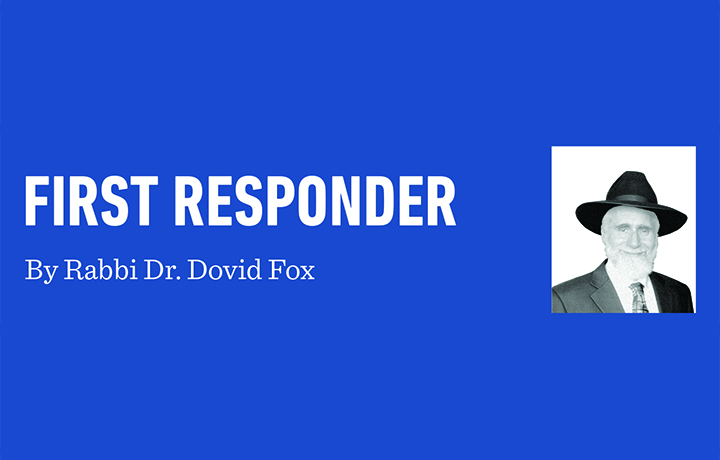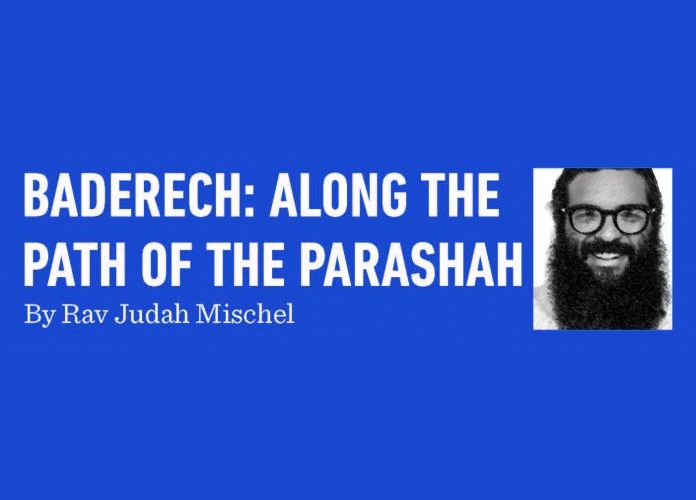Ultimate Freedom
Last week, we began studying Rebbe Yehoshua ben Levi’s teaching that only those involved in Torah study are genuinely free. Rebbe Yehoshua derives this idea from the Torah’s description of the writing on the luchot as “charut” (a word spelled the same way as “cheirut,” free). What is the significance of this source? Why does the Torah choose specifically this method of teaching us freedom’s dependency on Torah learning?
We saw that many meforshim link Rebbe Yehoshua’s statement to Rebbe Nechunya’s earlier exemption of Torah scholars from taxes and other communal obligations (Avot 3:5).
These obligations are not the sole way people are subjugated to others. Many end up under other people’s control by falling under their sway. When we model ourselves after other people’s values and expectations, we sacrifice the unique personal identity we are meant to develop.
The worst form of slavery is that of the spirit. We do not achieve true freedom through political emancipation. We find it by pursuing our intended life path; we are only free when we realize our true and natural selves.
Rav Kook (MH’R 157) measures slavery and freedom this way. One can live free of restriction and obligation and even own slaves, but actually be a slave because he feels beholden to society’s expectations. Conversely, many are physically enslaved but are truly free because they maintain their spiritual independence.
The Jews of the Warsaw Ghetto were an excellent example of this phenomenon. Even before their uprising against the Nazis, Rav Oshri (Mima’amakim 3:6), the rav of the Warsaw Ghetto, directed them to continue reciting the berachah of shelo asani aved (“that He did not make me a slave”) because they were free in spirit and fully able to choose to commit themselves to avodat Hashem. The Nazis may have controlled them physically, but they remained spiritually free. From this perspective, the eventual Warsaw Ghetto uprising was merely an attempt to translate their spiritual freedom into physical reality.
Torah study helps us achieve this spiritual independence by teaching us eternal Heavenly truth, wisdom, and direction. Torah study frees us from fleeting contemporary perspectives. Our connection to Hashem’s eternal values has enabled us to transcend the values and milieus of hundreds of countries and cultures with which we have interfaced.
The reality of modern media has submerged us even more deeply and intensely within secular society, threatening our unique, G-dly values. Now more than ever, it is critical that we use Torah learning to help us sustain our spiritual autonomy.
Torah learning also frees us from additional internal, more subtle forms of slavery: subjugation to our own physical drives and desires and the pursuit of meaningless activities. Focusing on important things helps us avoid focusing on what is not.
Contemporary society sees freedom as merely the lack of external control—freedom from control, commitment, and responsibility. For example, in his famous 1941 State of the Union Address (later known as The Four Freedoms Address), Franklin D. Roosevelt spoke about the freedoms of speech and worship, as well as freedom from fear and want. Facing the evil Nazi regime, which limited personal freedoms, he identified the values that the United States and its allies went to war to defend.
In the broader historical sense, Roosevelt’s address responded not only to the Nazis of his generation but also to the abuse of millennia of monarchies and dictatorships that institutionalized slavery and serfdom and curtailed fundamental personal freedoms. Modern democracies aim to solve these issues by hailing human rights as inalienable.
Unfortunately, the overemphasis on freedom has fostered a lack of responsibility and meaning. Released from governmental mandates and religious and societal norms, many have become addicted to pleasure and focused on meaningless pursuits.
Our Mishnah teaches that the only way to avoid these pitfalls is to engage in talmud Torah. Focusing on Torah learning also gives us a meaningful mission about which to be passionate. The enthusiasm we develop for it inspires us to minimize engagement with meaningless things and gives us something more meaningful than physical pleasure to pursue.
The Maharal (D”C 6:3) explains how Rebbe Yehoshua derived this idea from the Torah’s description of the letters of the Luchot. The letters were engraved from the front to the back of the rock in a way that left the internal parts of the letters Samech and Mem Sofi disconnected from and thus unsupported by their physical surroundings. Despite this lack of material support, the innards of these letters miraculously remained suspended in mid-air. So, too, explains the Maharal, our focus on the spiritual helps us avoid dependency upon the physical.
There is a fourth way that Torah study and avodat Hashem facilitate freedom. They not only free us from commitment to what is wrong (sur mei’ra), but also help us realize our true potential (asei tov).
In his Kuzari, Rav Yehudah Halevi used this idea to answer the Kuzar king’s question about Rav Yehudah’s intended aliyah. The king asked why he sought to incur the additional mitzvot and responsibilities aliyah would generate. The Kuzari explained that “commitment to Hashem is the ultimate freedom, and subjugation to Him is the ultimate honor” (Kuzari 5:25).
Though we understand the Kuzari’s association of honor with avodat Hashem, it is harder to explain why he saw avodat Hashem as freedom. We know that mitzvot are essential responsibilities, but how does fulfilling them make us free?
Rav Kook (O”R) explains that only avodat Hashem helps us realize our unique potential and the ability to forge our true identity. Hashem creates each person with a creative, independent soul that yearns to actualize itself. Avodat Hashem is the framework that enables each person to accomplish this and make their unique contribution to the world.
Food and sleep sustain our physical existence, but they do not help us realize our potential. We accomplish that through avodat Hashem.
This is why we use specifically the phrase ben chorin and the word cheirut, as opposed to chofesh, to describe our freedom. Chofesh means a lack of responsibility; cheirut connotes true freedom.
We characterize the yom tov of Pesach as “z’man cheiruteinu” because Yetziat Mitzrayim’s goal was more than just liberation from servitude to Mitzrayim. More importantly, it facilitated avodat Hashem.
The story we tell on the Seder night is not just about our physical emancipation from Mitzrayim. The Haggadah summarizes the process we commemorate and celebrate as our transformation from ovdei avodah zarah to ovdei Hashem: “Mi’techilah ovdei avodah zarah hayu avoteinu, v’achshav kervanu haMakom la’avodato”—Our ancestors initially served idols, and now Hashem has drawn us close to His service.
Though we appreciate Hashem freeing us from physical slavery, we focus on the transition to “avodat haMakom” because that gives our life and physical freedom meaning and purpose. It is what makes us “b’nei chorin”—genuinely free people.
May our appreciation of true freedom and Torah study’s ability to help us achieve it inspire us to maximize our opportunities to study it! n
Rav Reuven Taragin is the Dean of Overseas Students at Yeshivat Hakotel and the Educational Director of World Mizrachi and the RZA.
His new book, Essentials of Judaism, can be purchased at RabbiReuvenTaragin.com.













